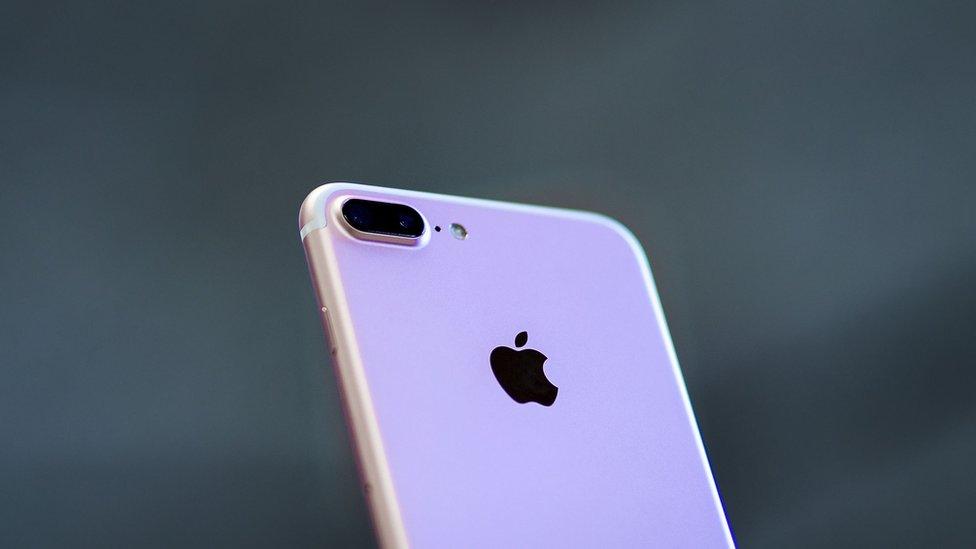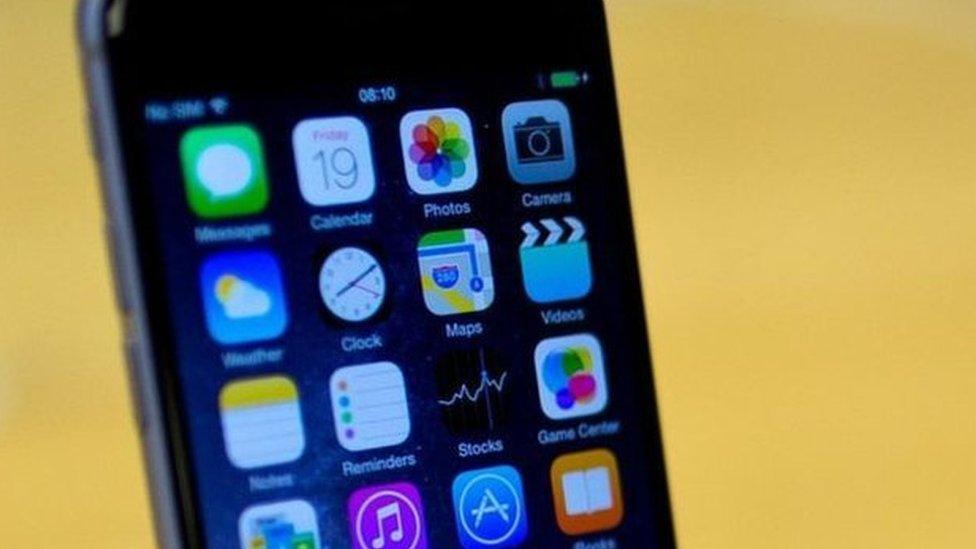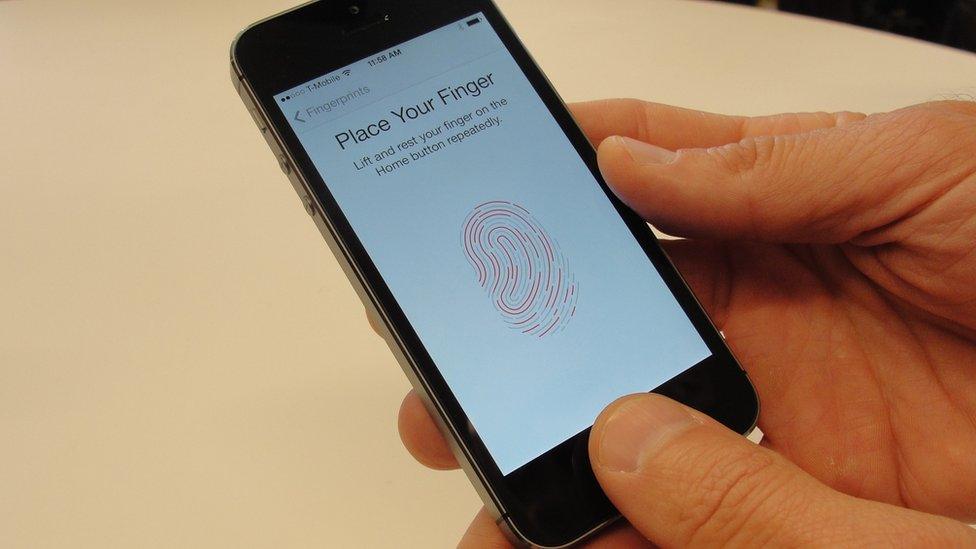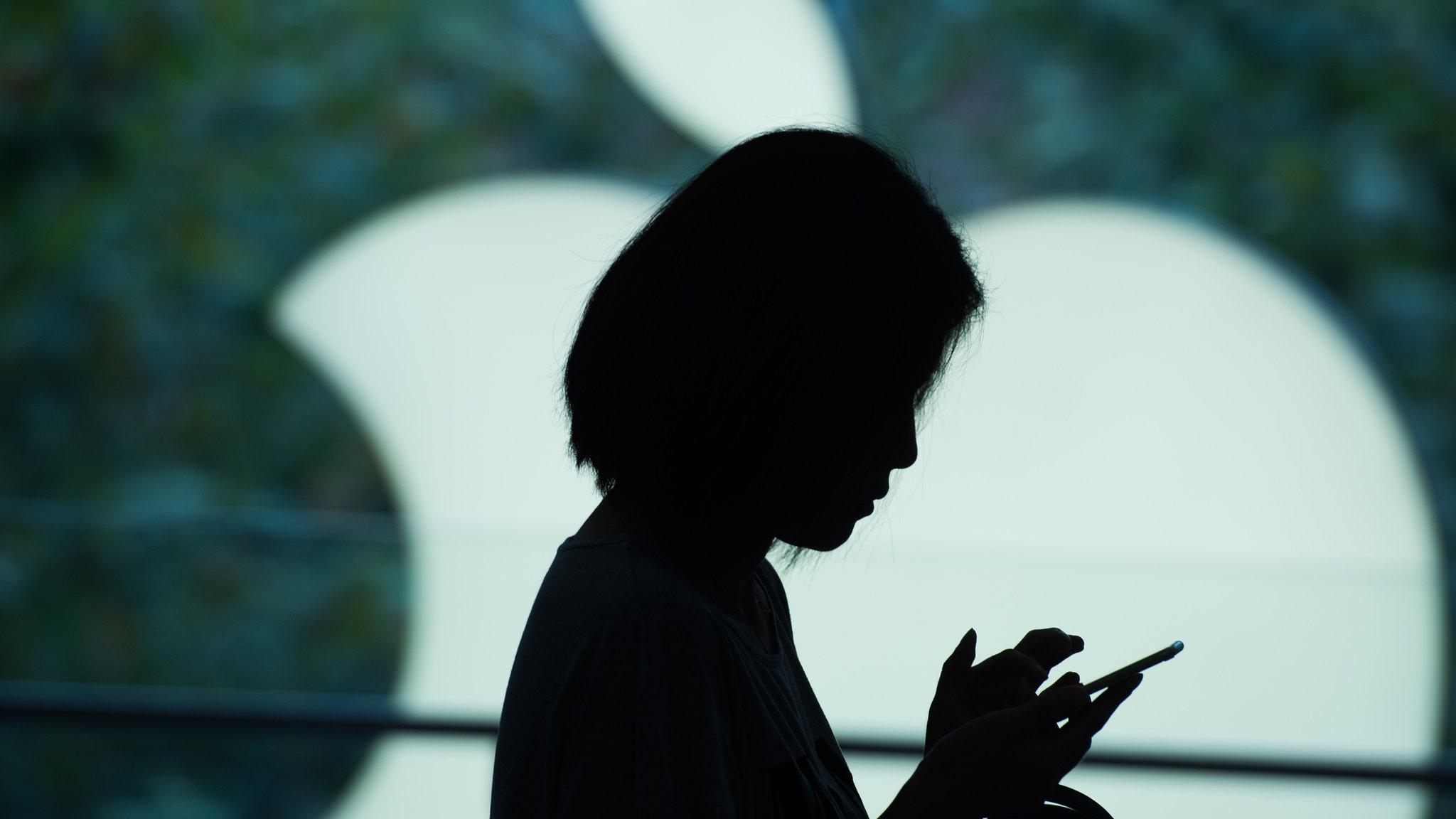Florida court says iPhone passcode must be revealed
- Published

The Florida court has said the suspect can be compelled to reveal his iPhone's passcode
A court in Florida has said a suspected voyeur can be made to reveal his iPhone passcode to investigators.
The defendant was arrested after a woman out shopping saw a man crouch down and aim what she believed was a smartphone under her skirt.
Previously, a judge said the defendant could not be made to reveal the code, citing constitutional protections.
That decision has now been reversed by the Florida Court of Appeal's Second District.
Store CCTV captured footage of a man crouched down, holding an illuminated device and moving it towards the victim's skirt, according to court documents published by news site Courthouse News.
Aaron Stahl was identified by law enforcement officers who reviewed the footage, according to court documents.
After his arrest, Mr Stahl initially agreed to allow officers to search his iPhone 5, which he told them was at his home.
However, once it had been retrieved by police - but before he had revealed his passcode - he withdrew consent to the search.
Fifth Amendment
The trial court had decided that Mr Stahl could be protected by the Fifth Amendment, which is designed to prevent self-incrimination.
However, Judge Anthony Black's formal opinion to the court quashed the decision.
Judge Black referred to a famous Supreme Court case, Doe v US 1988, in which Justice John Paul Stevens wrote that a defendant could be made to surrender a key to a strongbox containing incriminating documents but they could not "be compelled to reveal the combination to his wall safe".
"We question whether identifying the key which will open the strongbox - such that the key is surrendered - is, in fact, distinct from telling an officer the combination," wrote Judge Black.
"More importantly, we question the continuing viability of any distinction as technology advances."
'Got it wrong'
However, the decision was criticised by senior staff attorney, Mark Rumold, at the Electronic Frontier Foundation, a digital rights group.
"I think they got it wrong," he told the BBC
"This is not the first time this issue has come up in the courts and I think other courts have done a better job of evaluating the Fifth Amendment and the constitutional rights that are at stake."
Mr Rumold said there were "sound constitutional reasons" to prevent the state compelling information from a defendant's mind.
He added that there were a number of cases across the US in different courts tackling the issues around unlocking phones.
"It's something the Supreme Court will need to weigh in on eventually," he said.
- Published2 December 2016

- Published3 May 2016

- Published8 March 2016
